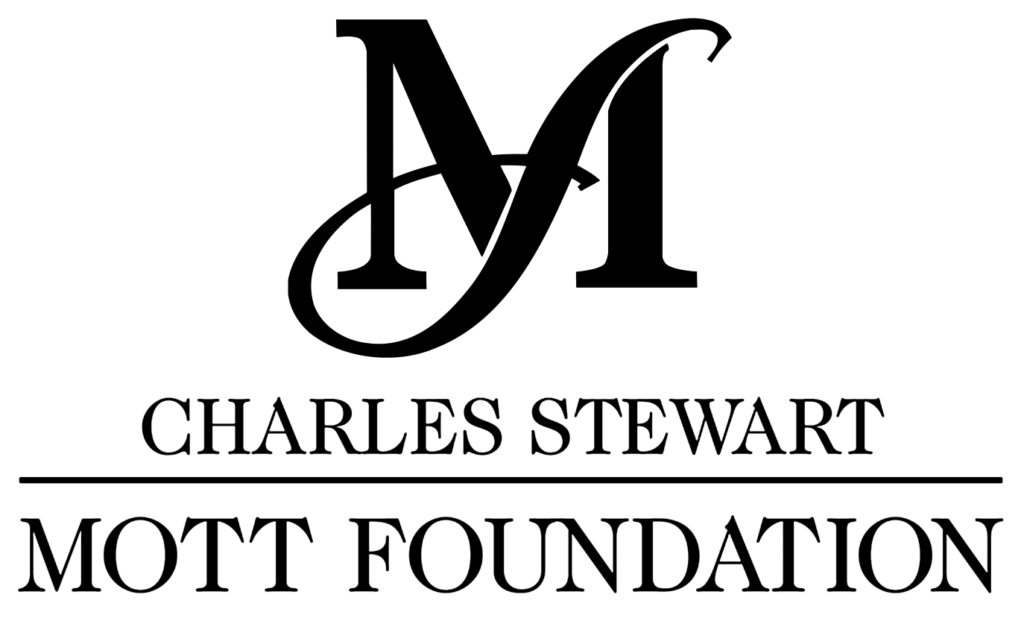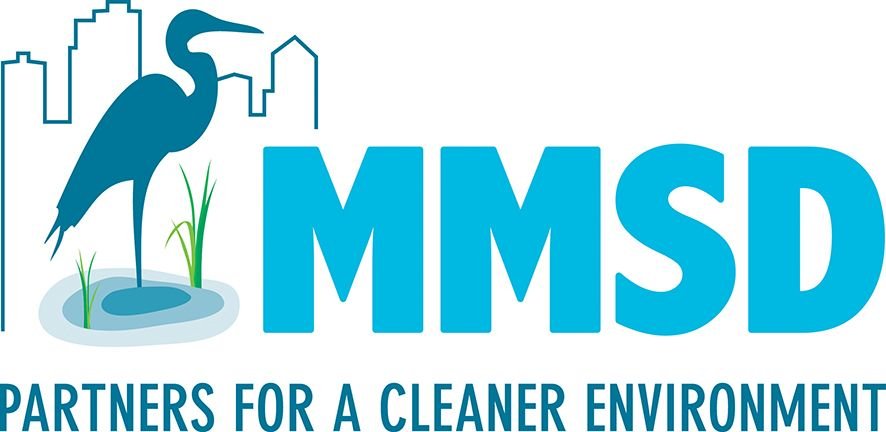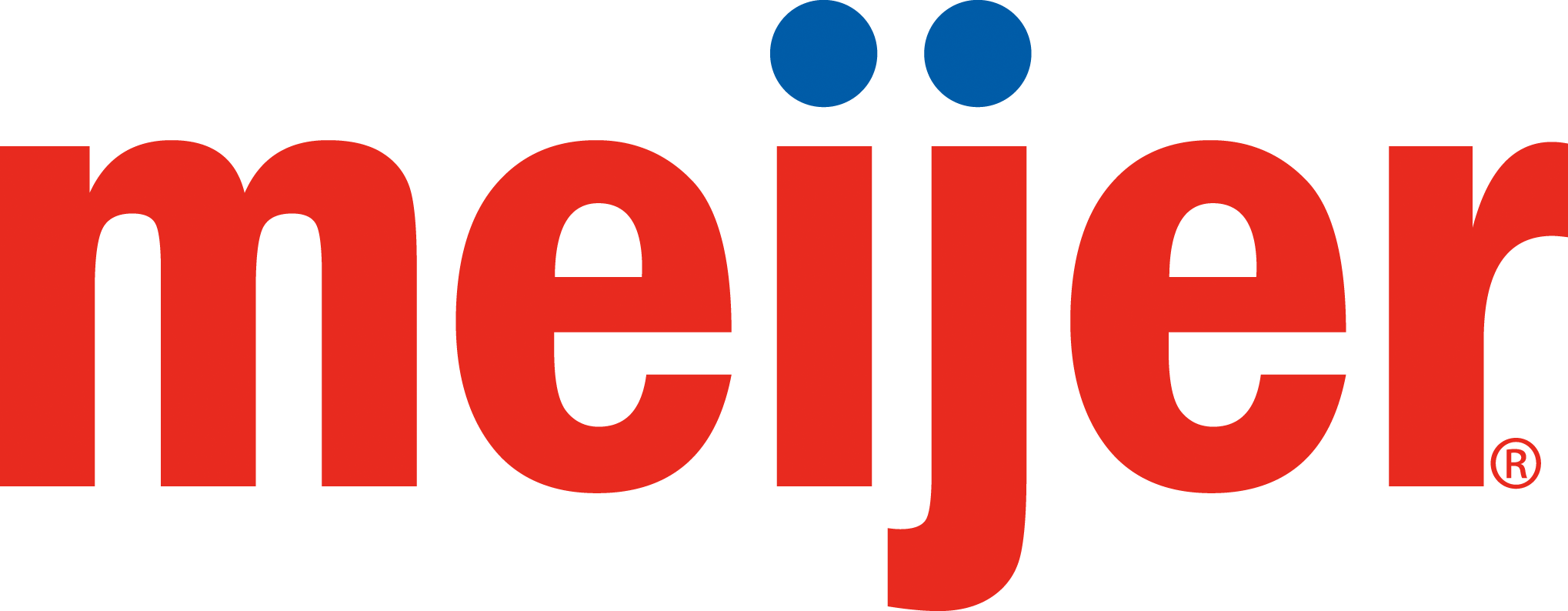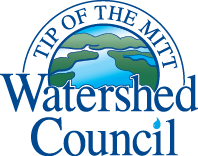Great Lakes Conference 2022
We’re back! The Great Lakes Conference 2022 will be held from Tuesday, October 18 to Wednesday, October 19 in Milwaukee, Wisconsin.
Since we haven’t been able to meet in-person for a few years now, we want this year’s conference to be about coming together as a Great Lakes community. The first day will include afternoon field trips and an evening reception, whereas the second day will be more conference-like with a full day of plenaries and breakout sessions. After such a long period of limited interactions, we want this to be a space for building connections and sharing ideas.
Registration for the conference is now closed.
-
October 18-19, 2022
Wisconsin Center
400 W Wisconsin Ave.
Milwaukee, WI 53203
Tuesday, October 18
2:00 PM – 5:00 PM Field Trips
6:00 PM – 9:00 PM Welcome Reception
Nō Studios
1037 W McKinley Ave.
Milwaukee, WI 53205
Wednesday, October 19
8:00 AM Registration / Breakfast / Exhibits & Posters
9:00 AM Welcome
Mike Shriberg, Regional Executive Director, Great Lakes, National Wildlife Federation
Laura Rubin, Director, Healing Our Waters-Great Lakes Coalition
9:15 AM Keynote
Debra Shore, regional administrator for U.S. EPA Region 5
9:45 AM Plenary Panel: Unpacking the Components of a Climate Resilient Society (Room 202)
Brenda Coley, Co-Executive Director, Milwaukee Water Commons
Richard Diaz, Chairman, Coalition on Lead Emergency
Mark Denning, Water Protector
Deneine Powell, FUSE Executive Fellow City of Milwaukee
10:45 AM Break
11:00 AM Breakout Sessions
“Help! I need to get the word out ASAP!”: Create a Quick & Easy Communications Plan to Raise Awareness & Activate Your Community (Room 203AB)
In this hands-on workshop, you’ll create a quick, easy-to-implement communications plan for an advocacy issue in your community and leave ready to put it into action. You’ll learn the 5 elements of winning communication plans that raise awareness and activate your community but don’t require a big staff or budget.
Jennifer Caddick, Vice President Communications & Engagement, Alliance for the Great Lakes
The Community Advisory Committee’s Role in Cleaning Up the Milwaukee River Estuary Area of Concern (203C)
Decades of planning has led to a generational opportunity to clean up the Milwaukee River Estuary Area of Concern (AOC). This workshop will provide an AOC overview but largely focus on an innovative and comprehensive framework developed to engage the community in cleanup efforts using anti-racist and environmental justice principles.
Cheryl Nenn, Riverkeeper, Milwaukee Riverkeeper
Susie Seidelman, Principal, Victura Communications
Steven Hunter, Program Director, Nearby Nature Milwaukee
Protecting the Great Lakes and Clean Water Rights from Enbridge’s Line 5 (203DE)
Enbridge now operates Line 5 illegally in the Great Lakes and on the Band River Band’s reservation. Join our panel of legal and advocacy experts to learn more about the legal and PR attacks against the state of Michigan and Bad River Band as Enbridge attempts to strip states and Tribes of their sovereignty to protect water. This Line 5 panel will provide a full update on the effort to uphold state and Tribal rights, including how the advocacy communities is pushing back fossil fuel disinformation that attempts to justify the continued illegal use of this nearly 70-year-old pipeline that threatens the Great Lakes as well as Enbridge’s unneeded expansion proposals.
Beth Wallace, National Wildlife Federation and the Great Lakes Business Network
Sean McBrearty, Oil & Water Don’t Mix and Clean Water Action
Whitney Gravelle, Bay Mills Indian Community
Forming Partnerships between Community Members and NGOs to Elevate Community Voices (201CD)
Leaders of the Great Lakes PFAS Action Network and impacted community members will provide pointers on how to blend the resources of non-profit organizations with the knowledge and voices of impacted community members to push for changes that mitigate or eliminate contamination from PFAS chemicals in Great Lakes communities.
Sandy Wynn-Stelt, Co-Chair, Great Lakes PFAS Action Network
Tony Spaniola, Co-Chair, Great Lakes PFAS Action Network
Erica Bloom, Toxics Campaign Director, Ecology Center / Great Lakes PFAS Action Network
12:00 PM Lunch
BIPOC attendees are invited to join the Coalition's Equity, Advisory and Action Committee (EAAC) during lunch for informal networking and relationship building
1:00 PM Plenary Panel: Our Future: Youth Experiences with the Environmental Movement (Room 202)
In this fishbowl conversation, young leaders from around the Great Lakes region will discuss the status and future of the movement around water and the environment. Drawing from their own experiences and perspectives, this discussion will uncover challenges and frustrations as well as signs of hope and calls to action.
Joe Fitzgerald, Water City Program Manager, Milwaukee Water Commons
Dynasty Ceasar, Senior Campaign Organizer, The Redress Movement
Brenda Santoyo, Senior Policy Analyst, Little Village Environmental Justice Organization
Brooke Bowers, Youth Leader, We The People of Detroit
Lindsey Bacigal, Healing Our Waters-Great Lakes Coalition
2:00 PM Break
2:15 PM Breakout Sessions
Community Partnerships: Strengthening People Power, Socializing Policy Research, and Driving Equitable Land Use Outcomes on the Southeast Side of Chicago (Room 203AB)
In conversation with community activists, policy advocates, and health researchers, learn about their approach to creating advocacy tools designed to socialize research and build support for policy change. Participate in a multimedia advocacy training. Reflect on the use of health and/or racial impact assessments in advancing environmentally just policies.
Olga Bautista, Executive Director, Southeast Environmental Task Force
Chloe Gurin-Sands, Manager, Health Equity & Planning Metropolitan Planning Council
Christina Harris, Director, Land Use and Planning Metropolitan Planning Council
Jeni Hebert-Beirne, PhD MPH, Associate Dean for Community Engagement & Interim Director of the Collaboratory for Health Justice and the Chicago Center for Health and Environment – Community Engagement Core at the University of Illinois at Chicago School of Public Health
Angela Larsen, Director of Planning, Alliance for the Great Lakes
Building Capacity in Lake Michigan Municipalities to Advance Coastal Resilience (Room 203C)
Sponsored by NOAA and the Great Lakes and St. Lawrence Cities Initiative, the Lake Michigan Coastal Resilience Initiative solicited municipal-scale coastal resilience projects along Lake Michigan and provided training and one-on-one coaching. We will demonstrate the project prioritization tool used to rank projects and highlight one or more projects chosen for engineering and design.
Becky Nicodemus, Environmental Scientist and Acting Great Lakes Regional Lead, NOAA’s Office for Coastal Management
Victoria Graves, U.S. Policy Advisor, Great Lakes and St. Lawrence Cities Initiative
Sue Hoegberg, Senior Project Manager, Dewberry
Julie Blackburn, Environmental Practice Group Leader, ISG, Inc.
Investing in Water Justice: Advancing Equitable Administration & Allocation of Water Infrastructure Dollars (Room 203DE)
Safe drinking water, healthy waterways, water affordability, and climate resilience all depend on investment in water infrastructure. Historic sums of federal funding are flowing through State Revolving Funds, but studies show these programs don’t always deliver dollars to communities most in need. This session will demystify the rules that govern how this funding is allocated by states and explore policy priorities to advance equity in SRF administration through the lens of procedural, distributive, and restorative justice. We’ll use Wisconsin as a case study and offer tools for advocates.
Brenda Coley, Co-Executive Director, Milwaukee Water Commons
Anna-Lisa Castle, Policy Director for Clean Water & Equity, Alliance for the Great Lakes
Scaling Up Conservation Agriculture: An Exploration of Challenges and Opportunities through a Stakeholder Engagement Process (201CD)
This workshop will focus on policy, economic, and engagement interventions to drive adoption of new conservation practices among Michigan farmers. This session will include a description of the project approach, as well as a short summary of findings. We will solicit audience perspectives on similar stakeholder engagement approaches.
Tom Zimnicki, Agriculture and Restoration Policy Director, Alliance for the Great Lakes
Adam Reimer, Conservation Outreach Specialist, National Wildlife Federation
3:15 PM Break
3:30 PM Great Lakes Advisory Board Panel (Room 202)
Stephen G. Galarneau, Office of Great Waters
Sylvia Orduño, Organizer, Michigan Welfare Rights Organization and People’s Water Board Coalition
Laura Rubin, Director, Healing Our Waters–Great Lakes Coalition
4:00 PM Closing (Room 202)
Laura Rubin, Director, Healing Our Waters-Great Lakes Coalition
4:30 PM Conference Ends
-
We have reserved a limited block of rooms at The Hyatt Regency Milwaukee, located at 333 W. Kilbourn Ave. from Monday, October 17 through Thursday, October 20. This hotel is conveniently located across the street from the conference venue.
You are required to make your own hotel reservations for the conference. Please do so as soon as possible! Reservations can be made online or by calling The Hyatt Regency Milwaukee: (402) 592-6464 / (888) 421-1442.
When calling for reservations, please indicate that you are with the HOW Great Lakes Conference.
Our guest block will be held until September 20, 2022 or until all rooms in the block have been filled. Any subsequent reservations are subject to availability.
The hotel guarantees the rate of $179 per night for either a single or double occupancy room.
The Hyatt Regency, Milwaukee, WI
Driving directions from General Mitchell International Airport (MKE)
-
Parking information for the Hyatt Regency Milwaukee/Wisconsin Center can be found on the Hyatt Regency website.
-
In light of the ongoing COVID pandemic, we want to show compassion for our vulnerable community members and work to keep conference attendees as safe as possible. As such, we will have a few precautions in place.
Masks will be required at all times, except when eating or drinking, or when outdoors. Vaccinations will also be required. If you are unvaccinated, or unable to provide proof of vaccination, the Coalition will have rapid tests available for you at the registration table before entering the event.
We know that vaccinations do not afford complete protection against COVID, so to promote a community of care, we are also encouraging vaccinated attendees to rapid test the days of the conference.
For everyone’s safety, the Coalition also requests that attendees please stay home if they are experiencing any COVID-related symptoms at the time of the conference. A full refund will be offered to any attendee who is not able to attend for this reason.
-
All field trips are scheduled for Tuesday, October 18, from 2-5. Field trips cost $10 in addition to the registration fee.
Field trips for this year include:
Equitably Turning Asphalt Covered Schoolyards into Social, Environmental, and Economic Community Assets
Milwaukee schools and partners are systematically replacing acres of asphalt covered urban schoolyards with publicly accessible, equitable, green spaces complete with stormwater green infrastructure, outdoor classrooms, recreational improvements, arts opportunities, and other community supporting features. There are 31 Milwaukee Public School projects in the redevelopment process with 5 constructed each summer. The projects are an excellent example of long-term strategic partnerships engaging local, state, and national governmental agencies, private funders, nonprofits, and community voices.
Boat Tour of the Milwaukee Area of Concern
Ahoy Maties! Participants will board a boat and take a guided tour of the Milwaukee waterways and will learn all about the efforts in Milwaukee to delist the Area of Concern. A panel of key stakeholders will highlight past, present and future projects that will help move the needle on clean water and healthy communities and tell the great story of how Milwaukee’s rich industrial past brought us here and how a determined coalition of diverse stakeholders is leading the charge to cleanup the area in a priority fashion.
Breweries and BMPs
Participants will tour a selection of Milwaukee’s stormwater best management practices (BMPs) that have been implemented at or near local breweries, while also getting to sample some of Milwaukee’s finest brews! The tour will be by bus with some light walking required. Along the way, local speakers will point out BMP and sustainability features, while also highlighting cultural and historic sites and stories.
Bikes, Barriers, and Beer: Sturgeon Rehabilitation on the Milwaukee River
This 4.5 mile bike tour along the Oak Leaf Trail will include stops at past and current dam removal, fish passage and monitoring project locations. Participants will hear about the history of the river, impacts of those past uses, and the work being done to restore the river and sturgeon populations. The tour will conclude at Estabrook Park where participants are encouraged to purchase refreshments at the Beer Garden and will be bussed back to the trailhead.
Once Lost, Now Found: The Revitalization of the Kinnickinnic River
The Kinnickinnic (KK) River is undergoing a historic revitalization by the Milwaukee Metropolitan Sewerage District (MMSD). Confined to a concrete ditch since the 1960s, the river is beginning to be renaturalized and widened with riffles, pools and healthy riparian habitat. Join representatives from Sixteenth Street Community Health Centers’ Department of Environmental Health and MMSD as you tour Milwaukee’s Lost River located within the most urbanized watershed in the state of Wisconsin and learn about the incredible changes taking place. Visit the new section of river within Pulaski Park, a community space nicknamed the KK River Plaza, and Jackson Park, soon to be revitalized; see how an urban river is being returned to a more natural state, increasing public safety, access to the river, and habitat for our precious plants, birds and aquatic species. Participants will also learn how this revitalization has truly been a community-wide and community-led effort with many diverse and passionate partners. Participants will tour from location to location on the bus, but a significant amount of walking on asphalt paths will also take place.
-
We will be having a reception at the fabulous Nō Studios on Tuesday evening. The cost of attending the reception is included in your conference registration, but if you would like to bring a guest, it is an additional $50.
Nō Studios address:
1037 W. McKinley Avenue
Milwaukee, Wisconsin 53205Getting to Nō Studios:
Nō Studios has a limited number of parking spaces available on site (approximately 60) after 5 PM
There is a public parking structure approximately 1 block away (902 W Juneau Ave)
Street parking - Winnebago Street typically has ample parking spots after 5 PM
Walking – Nō Studios is a 20 minute walk from the Hyatt Regency
Use this link to view a Google map with these sites pinned and a walking route from the Hyatt Regency to Nō Studios.
SPONSORS
Thank you to our sponsors for this year’s conference!
Interested in becoming a sponsor? Read this brochure to look at our sponsorship opportunities. If you have questions, you can contact Laura Rubin, director of the Healing Our Waters-Great Lakes Coalition, at RubinL@nwf.org, or (734) 887-7106.
LAKE SUPERIOR LEVEL
LAKE MICHIGAN LEVEL
LAKE HURON LEVEL
LAKE ONTARIO LEVEL
LAKE ERIE LEVEL
ADDITIONAL SPONSORS
































